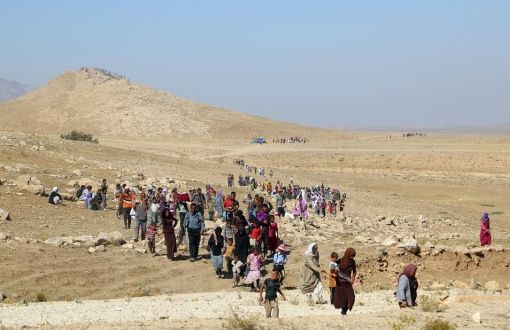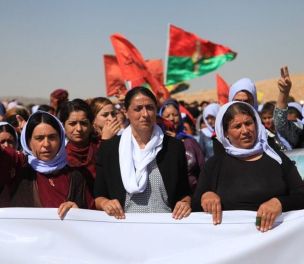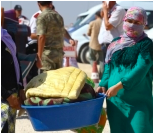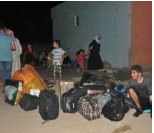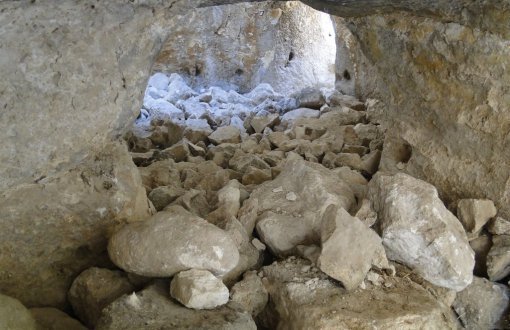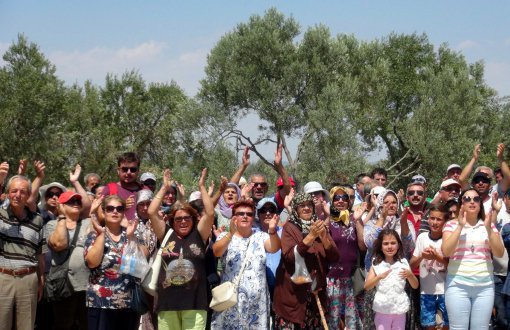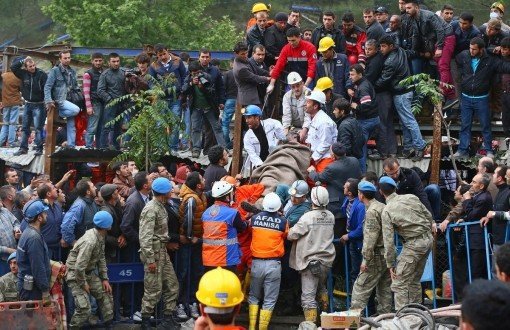Why did Ezidis suffer from atrocities for centuries and why are they turning their faces to the sun?
Following the attacks of ISIS in Sinjar, thousands of Ezidi people fled from their homes and sought for a refuge.
While a section of them moved to different provinces in Iraq and other found refuge in Rojava, others arrived in Silopi, Midyat, Viranşehir in Turkey.
How much do we know about a community whose number was initially around 500 and exceed 1000s after the new wave of migration from Iraq? How much do we know about Ezidi even if we don’t exactly know how to write their name?
Amed Gökçen from Bilgi University, one of the few experts on the topic, explained to bianet.
There are those who still insist on calling them “Yezidi”…
Yezidi word has very serious negative perception in the Middle East. Hasan and Hussein were killed by Muawiya Bin Yazid, so particularly Alevis, Shiites and a part of Sunni community consider the name Yazid as an insult. Just because of the letter “Y”, thousands of children of these people were killed. But they have nothing to do with the sons of Yezid.
Perpetrators: Everyone in the Middle East
Ezidis claim that they have been subject to 72 atrocities before and this one is the 73rd one…Why have this people been murdered this many times?
We do not know all of the dates about 72 atrocities. But we know the perpetrators: Everyone in the Middle East. Kurds, Arabs and Turkmens. The reason behind these atrocities is that they don’t know Ezidi culture. And that they believe in every humor about Ezidi people. There is a traditional belief of God widespread in the Middle East.
Ezidis believe in a single God. Just as in Islam, Christianity and Judaism.They also fast and have certain merits and sins. For some groups, there are more bans, for some not. Some groups eat cock and fish, some of them do not eat those. Some groups don’t eat veggies like lettuce, cabbage, cauliflower, others don’t eat elk, deer and other animals living in the mountains.
The biggest difference of Ezidis with other religions is their narration of angels. These different expression created the impression that "they believe in evil angels" for thousands of years, which also led to the slaughters. That angel is called Melek Taus (Peacock Angel).
The word Ezidi first reminds about the sun ...
So far, Ezidis was defined as sun worshipers, which is wrong. There is no worship space for Ezidis. During the morning they turn their faces to the sun and they do worship there, because they consider the sun as an proxy. They think that the sun delivers their voice to God. This does not only apply to the sun. If they want, Ezidis can pray also to the moon. For them, everything in nature contains a means of communication towards God. In many prayers they praise air, water, earth and fire shall reverence; however we do not pay attention to any of them.
Also, we ignore a significant point while talking about Ezidi people, it is that they don’t have unified notion of religious and cultural structure. There is nothing to keep them under one roof.
Where do they currently live?
Currently it is that their population is close to a million. This number is steadily falling. 400-500 people live in Turkey. They dwell in Diyarbakir, Batman, Urfa, Mardin. They generally live in villages and towns. Scattered in many places in Syria, there are around 30-40 thousand people in Syria. Half of the entire Ezidi population live in Iraq. Especially Dahuk, Mosul and Zakho. They are mostly spread in mountainous areas. They are also strong in Armenia with a population of 40-50 thousand people. Besides Georgia, they live in Moscow and Siberia. Apart from that, there is presence in Europe, based in Germany. Netherlands, Sweden and Switzerland also received Ezidi people lately. In recent years some have migrated to the United States. Iraq was the center of Ezidis. However, they don’t have any other center.
The real tolerance test
Does all Ezidis describes itself as Kurds?
In Iraq, as well as groups in Armenia and Georgia do not accept themselves as Kurds. In their perception, Islam and Kurdishness are the same. "We're not Muslim. Language is the only thing that unite us with the Kurds," they say.
The Kurdish movement help them though, they seem to own them…
The essence of the issue is not something that can be solved only in politics. Kurdish politicians might think that they need to help Ezidis as they faced atrocities. Prominent politician Ahmet Turk even came to apologize. A conference was held in Diyarbakir dedicated to Ezidis. There are many positive developments, but they didn’t change the life of 500 Ezidis who were already in Turkey. They're still having the same problems. So many of the municipalities in the region is collecting money for charity. But this is not enough. We will see when these people return to their land in Urfa, Diyarbakir, Mardin. Then we will see whether the Kurds have their own inner peace. We will see it for real when these people live their faith there. (NV/BM)
* Click here to read the article in Turkish.





